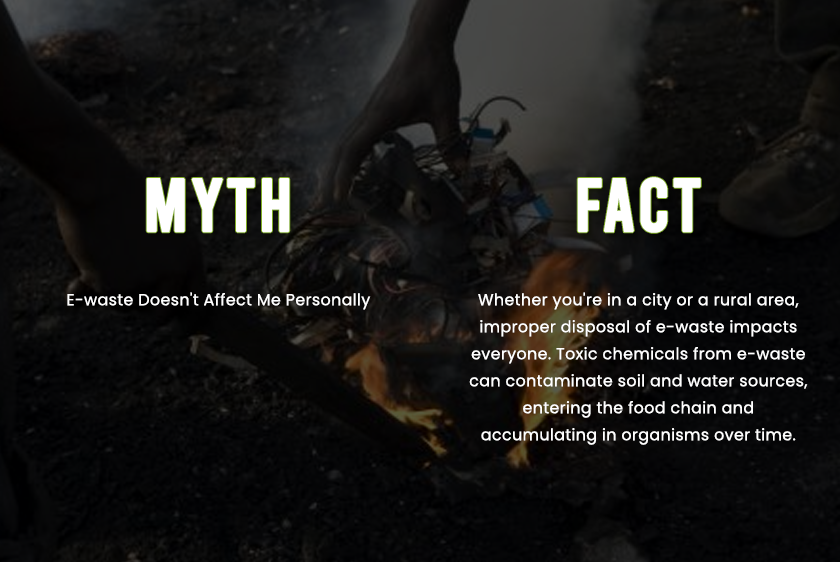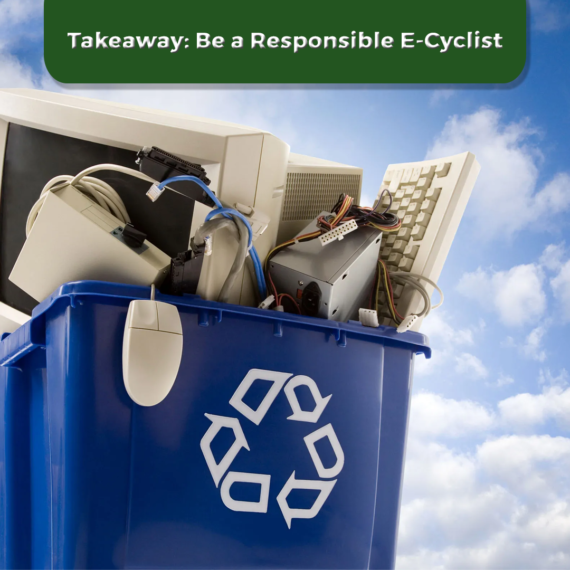
Impact of E-Waste on Human Health: Myths vs. Facts
We live in a world obsessed with the latest gadgets. But what happens to our old phones, laptops, and TVs when we upgrade? They pile up as electronic waste, or e-waste, creating a growing environmental and health concern. We must find sustainable solutions for handling e-waste to prevent further damage to our planet and ourselves. Recycling electronics, refurbishing old devices, or donating them to those in need are ways to reduce the negative impact of e-waste. There’s a lot of information circulating about the health hazards of e-waste, but how much of it is true? To better understand this pressing issue, let’s explore some common myths and facts surrounding the impact of electronic waste on human health.
Most Common Myths Associated With E-waste Impact on Human Health –
Myth: E-waste Doesn’t Affect Me Personally
Fact: Whether you’re in a city or a rural area, improper disposal of e-waste impacts everyone. Toxic chemicals from e-waste can contaminate soil and water sources, entering the food chain and accumulating in organisms over time. This bioaccumulation can eventually lead to health issues in humans, including reproductive problems, neurological disorders, and organ damage.
Myth: Only Direct Contact with E-Waste Is Dangerous
Fact: While direct contact with e-waste is indeed hazardous, indirect exposure is also a major concern. Burning e-waste, a common practice in some regions to extract valuable metals, releases toxic chemicals like dioxins and furans into the air. These pollutants can be inhaled or settle on crops and water sources, entering the food chain and affecting entire communities.
Myth: Recycling E-Waste Solves All Problems
Fact: While recycling e-waste is crucial for recovering valuable materials and reducing environmental impact, it doesn’t eliminate all associated risks. Improper recycling methods can still release harmful chemicals into the environment, affecting air, soil, and water quality. Moreover, not all e-waste is recycled responsibly, leading to health hazards for those involved in informal recycling practices and communities near disposal sites.
Myth: E-waste is Just Another Type of Trash
Fact: E-waste differs significantly from regular household waste due to its composition of hazardous substances like lead, mercury, cadmium, and flame retardants. These toxins can stay in the environment for years and pose serious health risks when improperly disposed of or recycled. Direct exposure to e-waste pollutants through handling or ingestion can lead to various health problems, including neurological disorders, respiratory problems, and reproductive complications.
Myth: Only High-Tech Electronics Pose E-Waste Risks
Fact: E-waste encompasses a broad range of electronic devices, including smartphones, computers, televisions, refrigerators, and medical equipment. Each category contains hazardous materials that require careful handling and disposal. Even smaller electronics like batteries and circuit boards contain toxic components that can harm human health and the environment if not managed properly.

Takeaway: Be a Responsible E-Cyclist
By understanding the impact of e-waste on our health, we can all play a role in mitigating the risks. Here’s what you can do:
- Extend the life of your electronics: Take proper care of your devices and consider repairs before replacing them.
- Recycle responsibly: Look for certified e-waste recycling facilities in your area. Never dump electronics in the trash!
- Support sustainable tech: Choose brands committed to responsible manufacturing and e-waste recycling programs.
E-waste is a complex issue, but by understanding the facts and taking action, we can secure our health and the environment for future generations. Remember, a little effort on our part can go a long way in ensuring a healthier future for all.
Read Our More Blogs:
5 Key Reasons to Choose Certified E-Waste Recycling Centers
Future of Wearable Technology and Its Implications for E-Waste
Follow us:







